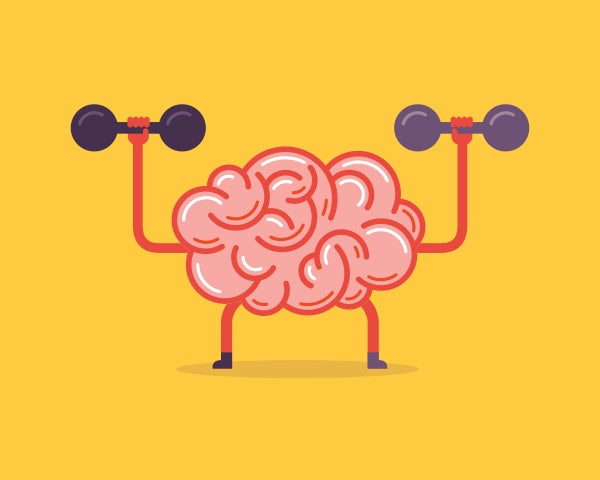Syllabus: Mental Training
Mental training for performance in athletics, the performing arts and more

Summer 2016
By Jennifer Latson
COURSE: LPAP 113 Mental Training for Performance Enhancement
(Summer 2016)
DEPARTMENT:
Lifetime Physical Activity Program
DESCRIPTION:
This course provides a broad overview of sport psychology concepts that are relevant to most kinds of performance, from athletics to the performing arts.
A GENTLER KIND OF TOUGHNESS
When Elizabeth Slator was a college athlete, playing softball and basketball at Auburn, training philosophies tended to put the “tough” in mental toughness. The problem: There wasn’t any evidence that this approach made athletes play better. More recently, trainers have shifted toward techniques based in self-awareness and acceptance, which research has linked to better results. In her summer class, Slator, a sport psychology consultant and the associate director of Rice’s Gibbs Recreation and Wellness Center, teaches these principles to anyone looking to improve performance — athletic, artistic, academic or otherwise. In the fall, she teaches the course to grad students in the Shepherd School of Music.
HIGHLIGHTS
Getting in the Flow
Traditional sport psychology required athletes to apply the same brute force to their minds that they did to their bodies: regulating their breathing, eliminating distracting thoughts and fixating on their goals. But since one of their goals is to achieve a state of flow — which is, by definition, fluid and seemingly effortless — Slator, who has a Ph.D. in health and human performance, was not surprised that a more flexible approach worked better. “The harder you try to shut out the noise in the background, the harder it becomes,” she said. “That’s true with a lot of things. The harder you try to relax, the more stiff you become.”
Mental Toughness: You’re Doing It Wrong
Slator’s students learn a new way of defining mental toughness. “I had a student call it ‘mind control’ once, and we had a whole conversation on what it really means to be mentally tough,” she said. Rather than refusing to allow for weakness or failure, true toughness comes from acknowledging the stumbles along the way to success, according to Slator. “There’s this oxymoron: In order to really become mentally tough, you have to be comfortable being vulnerable.”
Throwing (Mental) Darts
In one lesson, Slator drew on Buddhist principles to discuss a theory called the darts of suffering. As the teaching goes, suffering begins with the first dart, the organic cause of grief or loss: perhaps the end of a relationship or the loss of a job. The second dart is self-inflicted; it’s the way we make sense of that suffering, and often it does more damage than the first. “If you tell yourself you didn’t get that job because you’re stupid or a failure, then you create this layer of suffering that you don’t really have to add to your life,” Slator explained. “Stepping back and seeing that choice point can eliminate some of that suffering.”
Mindful Assignments
Throughout the course, Slator’s students practiced mindfulness, becoming more aware of their surroundings and physical sensations in an effort to stay focused on the present. Zoe Loversky, a McMurtry College junior majoring in viola performance, said the experience will help her as a musician. “It’s been a relief learning that mindfulness doesn’t mean you have to control your thoughts,” she said. “It can be easy to turn into a machine, especially in music school, when you’re practicing the number of hours we do. This showed me that I can be human and also perform well.”
